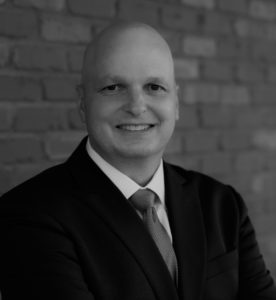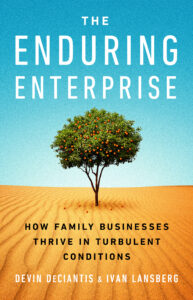
Owner Development
Develop yourself, your organization, and your family
The Challenge
Engaged ownership and effective leadership rarely exist in a vacuum — they require a lifetime of learning and development. Not only do young owners need to build a general awareness of their family enterprise and the challenges of continuity, but leaders of all ages need to invest in expanding their knowledge base to keep pace with a rapidly changing environment. When families get this right, their owners and leaders can create significant long-term value for all of their stakeholders.
Our Solution
Wherever you are in your learning journey, LGA offers a range of workshops, seminars, and experiential opportunities — from one-off sessions to comprehensive multi-year owner development programs. Each offering is tailored to the unique developmental needs of the family, its owners, and its leadership teams.
Our focus is on building the key competencies necessary to sustain the success of your family enterprise across generations, with unique programming for each of the four types of owners:
Engaged Owners – Stewarding the Family Enterprise:
Owners who are neither in governance or management roles but care about the family business (e.g., participate, prepare, stay informed)
Governing Owners – Representing the Owners:
Owners who serve exclusively in governance roles (e.g., boards, councils, committees above CEO or in family governance)
Leading Owners – Leading the Enterprise:
Leaders of the governance structures (boards, councils, committees, etc.) ensuring they function properly
Operating Owners – Running the Business:
Owners who serve in management roles and are deeply connected to the enterprise (e.g. including CEO or below)
How does it work?
Within each of these ownership groups, your LGA advisor can help you design a strategic curriculum to develop five core competencies:
- Contextual Intelligence: Knowing and understanding the past, present, and future plans for the family and the business
- Business Acumen: Ability to understand and interact with business data and situations effectively
- Practicing Governance: Understanding and navigating the roles, processes, and rules for decision-making throughout the enterprise
- Interpersonal Skills: Communicating, collaborating, and managing conflict effectively
- Values & Ethics: Aligning personal actions with shared norms of appropriate behavior
How does your family benefit?
Our experience as educators has taught us that family members each have unique learning profiles and preferences. Consequently, our owner development programs draw on a variety of conventional and experiential formats, including keynote presentations, curated site visits, fireside chats with enterprise leaders, peer sessions with other leading families, and hands-on simulations and exercises facilitated by LGA advisors.
We work with family leaders to assess your family’s readiness for educational programming, key topics of interest, preferred formats of learning, and the ideal frequency and location of these activities. This data will help us ensure the greatest participation and impact of these investments in your family’s human capital. Once built, these programs are often institutionalized in the form of a Family Academy, which is available on an ongoing basis and serves as the first point of exposure for young family members to the family enterprise.
For those families who aren’t yet ready to build and deploy a multi-year program, we also offer a variety of stand-alone programs.
Leveraging decades of experience both on-campus and working closely with families like yours, LGA can help you build your own development program that will lay the foundations for sustaining success across generations.
Case Study
Case Study: Sustaining Engagement in a Cousins Consortium
Three third-generation Family Directors of a large enterprising family were attending a global conference focused on innovation and growth. Their 90-year old family had deep pride and gratitude for the success and leadership of previous generations. However, there were no family members currently working actively in the business, and the family’s only connection to their vast operations — which spanned eight industries and three continents — was limited to these three members of the Board.
Related Insights

The Power of a Shared Vision in Enterprising Families
Family philanthropy offers families the opportunity to work together in service of a greater good—and in so doing, strengthen family relationships, transform individual participants, and address pressing social problems. But in today’s evolving landscape, family foundations—particularly more established ones—face a critical internal reckoning. More and more in our work with philanthropic families, we see family members questioning their roles and wondering if their contributions are truly meaningful. This introspection, fueled by a growing emphasis on equity and impact, raises a fundamental question: What is the value of our family in our family philanthropy now?

What is the Value of Family in Family Philanthropy?
Family philanthropy offers families the opportunity to work together in service of a greater good—and in so doing, strengthen family relationships, transform individual participants, and address pressing social problems. But in today’s evolving landscape, family foundations—particularly more established ones—face a critical internal reckoning. More and more in our work with philanthropic families, we see family members questioning their roles and wondering if their contributions are truly meaningful. This introspection, fueled by a growing emphasis on equity and impact, raises a fundamental question: What is the value of our family in our family philanthropy now?

Succession Plans in Asian Family Enterprises
Jeremy Cheng explains in an article published by Bloomberg magazine why the Lui family, an enterprising family in Hong Kong did a good thing in laying down a plan for succession before the patriarch’s death.

Governing Legacy: Going beyond the Governance Marathon
In this article originally published in FFI Practitioner, our Advisor Jeremy Cheng explores the dynamic nature of legacy within family enterprises and the critical role of governance in its evolution. He emphasizes that legacy is not a static inheritance but a co-constructed entity shaped by interactions between legacy “senders” (e.g., founders) and “receivers” (e.g., successors).

Crossing the Generational Chasm for Sustainability
LGA Advisor Jeremy Cheng, alongside his co-authors, explores how the second generation of Asia Green Group, a Malaysian family business in the timber and property sectors, is shaping sustainability efforts
Featured advisors

Matt Allen
Matt’s expertise is in the area of family learning, family entrepreneurship and the development of the next generation

Ernie Patterson
Ernie is focused on designing, implementing, and supporting governance systems and educational programs within complex multi-generational family enterprises.

Thomas Ang
Thomas is a Partner with LGA, where he leads the firm’s Global Practice for Family Offices and is the lead advisor for Asia.

Helena Schmidt
Helena has been supporting leaders and teams for over two decades, specializing in leadership development, executive coaching, team coaching, and organizational learning. With deep expertise in adult learning, neuroscience, and systems thinking, Helena has worked with over 200 global leaders from top organizations.

Claudia Tondo
Claudia has been advising business families for over three decades, with expertise in businesses families’ transitions, family governance, shareholder relations, family protocols, and strengthening corporate governance.

Diane Roche
Diane is a psychologist who consults in complex business and family environments to optimize the functioning of both individuals and the family business system.


